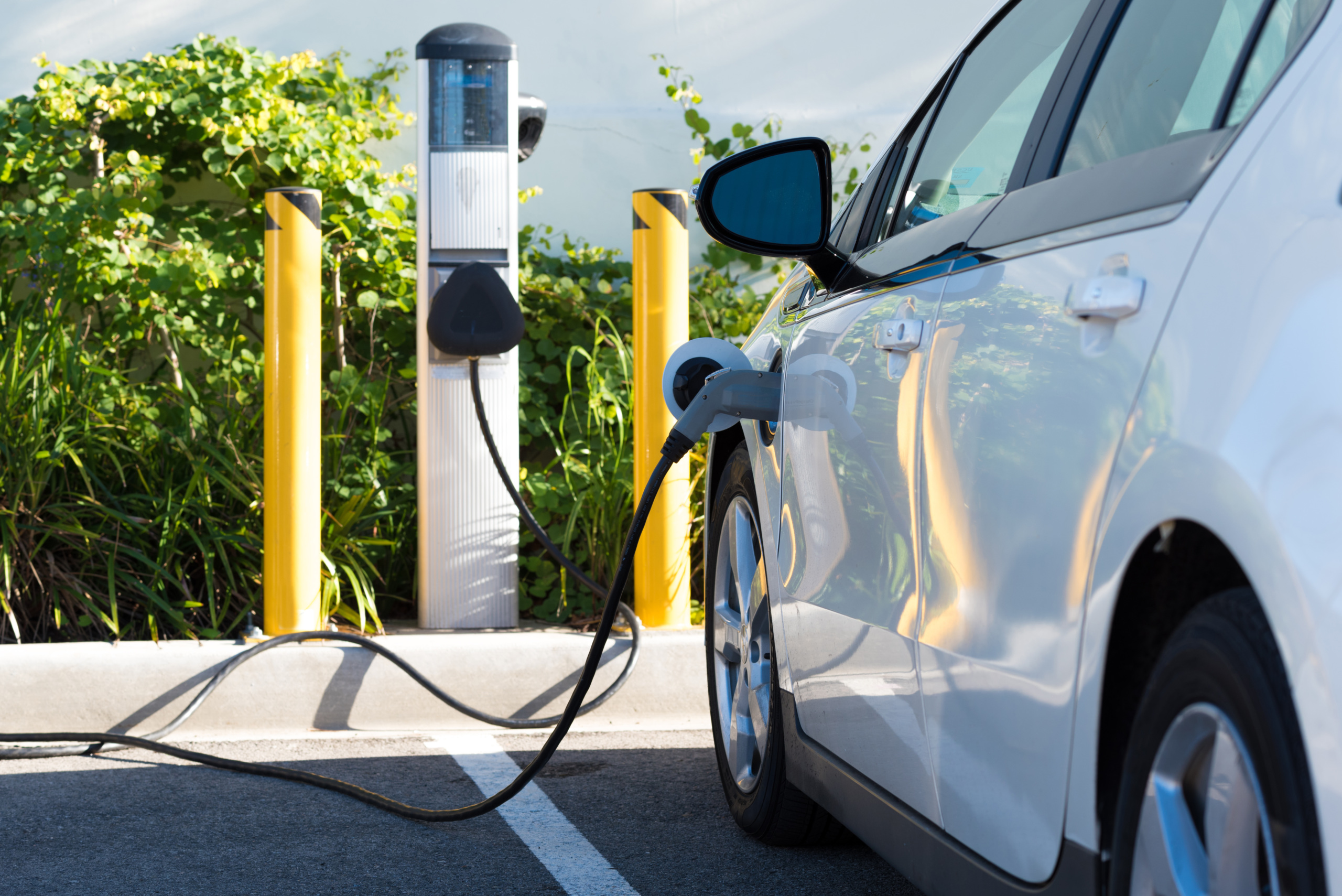We’ve never been closer to an electric vehicle future than we are right now — a future where our kids ride electric buses to school, our mail and packages arrive in electric trucks, and every new car that’s sold gets plugged in at night.
Accelerating the transition to an electric vehicle future will also play a key role in moving our communities to clean, renewable energy more broadly.
But that transition won’t just happen overnight — it takes smart, strategic policy, combined with persistent grassroots organizing, to win concrete progress toward a clean energy future.
The dramatic rise of electric vehicles (EVs) over the past decade is a perfect example. Americans bought almost 647,000 plug-in electric vehicles in 2021 — a nearly 13-fold increase from 2012. Meanwhile, the number of electric vehicle chargers nationwide exceeded 120,000 — a nearly 20-fold increase from 2012. Check out our new Renewables on the Rise Dashboard to learn more about the growth of EVs and other clean energy solutions in your state — and how we can move even faster in the years ahead.
With EVs, just as with solar and wind power, Environment America, our research partners and our supporters have built a steady drumbeat of momentum for action on the state and federal levels. Specifically, we’ve worked for policies that address Americans’ primary concerns about EVs, their affordability, and how easy or hard it may be to charge up.
Take the cost of EVs, for example. This past summer, as Congress was hammering out key clean energy provisions in the Inflation Reduction Act, our advocates and supporters spoke up for the inclusion of EV tax credits in the bill.
And we won: The final law includes a $4,000 tax credit for consumers to buy used EVs and up to a $7,500 tax credit for consumers to buy new EVs. This could be a game-changer for EV affordability across the country, which will help speed the transition away from dirty, fossil fuel-powered cars and toward clean electric ones. The tax credits will spur EV sales, which will increase demand and help to bring down costs over time, the same way similar policies have helped to bring down the cost of solar technologies.
And while many Americans might be (understandably) concerned that EVs won’t be able to take them where they need to go, new policies and advancements are rapidly eliminating that problem, too.
As a result of battery improvements, the newest EV models have ranges upwards of 300 miles. Additionally, over 95% of car trips in the U.S. are less than 30 miles, which is easily serviced by an EV. And for longer trips, more EV charging stations are on the way. Both this year’s Inflation Reduction Act and last year’s bipartisan federal infrastructure package include major investments in EV charging infrastructure — helping ensure it gets even easier to find a place to charge your EV in the years to come.
There’s no question that a nationwide transition to clean, electric vehicles will be a crucial component of our efforts to slow global warming and pass on a healthier planet to our kids and grandkids. Transportation is currently America’s No. 1 source of greenhouse gas emissions, and a zero-carbon future will require every car on the road to run on clean, renewable energy by 2050.
If the last 10 years of EV and renewable energy growth have taught us anything, it’s that we have all the tools to achieve a clean energy future — we just have to use them. Tough-minded research, strategic advocacy and grassroots organizing are what got us here, and we’re just getting started.

